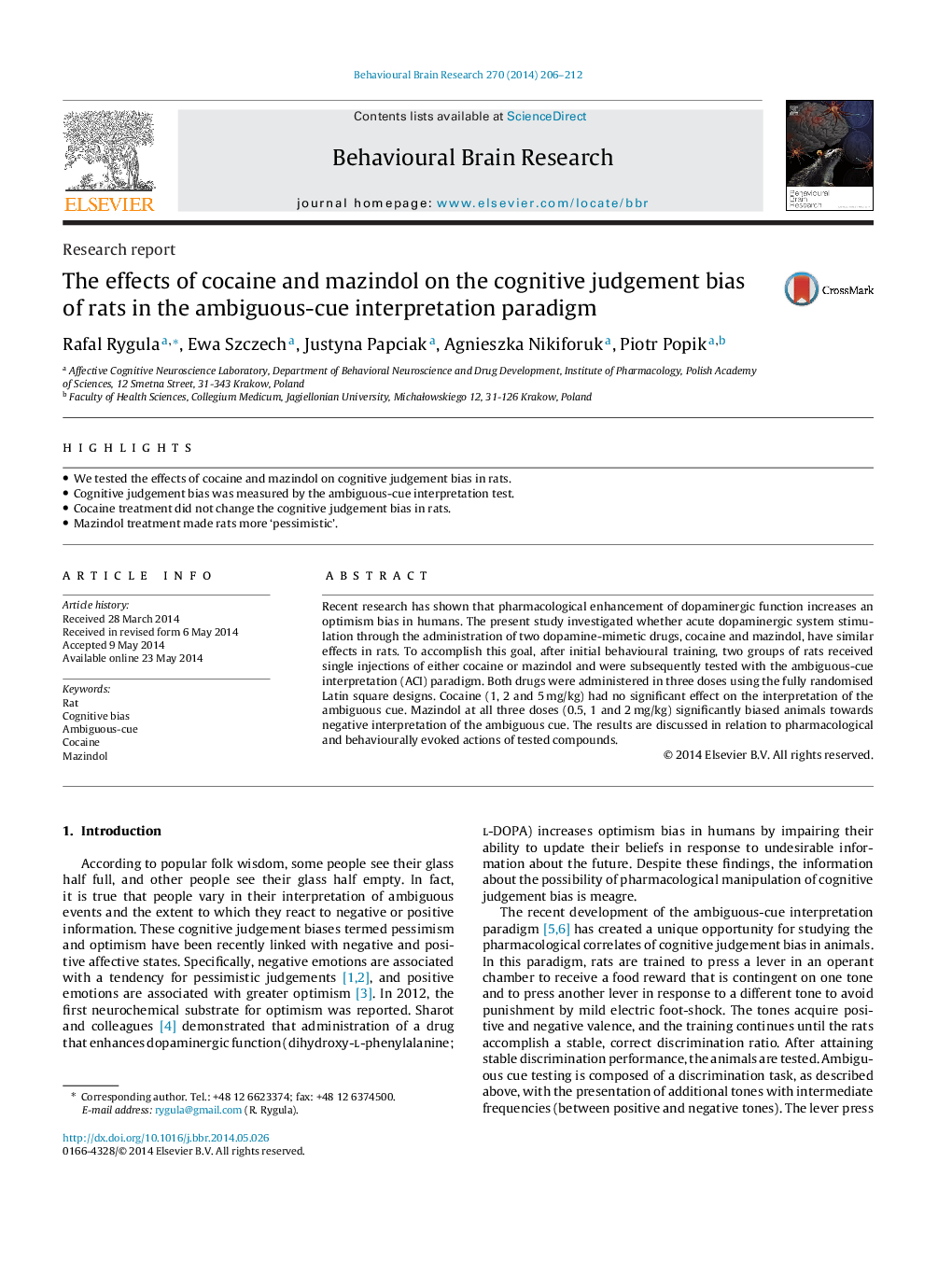| Article ID | Journal | Published Year | Pages | File Type |
|---|---|---|---|---|
| 6257929 | Behavioural Brain Research | 2014 | 7 Pages |
Abstract
Recent research has shown that pharmacological enhancement of dopaminergic function increases an optimism bias in humans. The present study investigated whether acute dopaminergic system stimulation through the administration of two dopamine-mimetic drugs, cocaine and mazindol, have similar effects in rats. To accomplish this goal, after initial behavioural training, two groups of rats received single injections of either cocaine or mazindol and were subsequently tested with the ambiguous-cue interpretation (ACI) paradigm. Both drugs were administered in three doses using the fully randomised Latin square designs. Cocaine (1, 2 and 5Â mg/kg) had no significant effect on the interpretation of the ambiguous cue. Mazindol at all three doses (0.5, 1 and 2Â mg/kg) significantly biased animals towards negative interpretation of the ambiguous cue. The results are discussed in relation to pharmacological and behaviourally evoked actions of tested compounds.
Keywords
Related Topics
Life Sciences
Neuroscience
Behavioral Neuroscience
Authors
Rafal Rygula, Ewa Szczech, Justyna Papciak, Agnieszka Nikiforuk, Piotr Popik,
